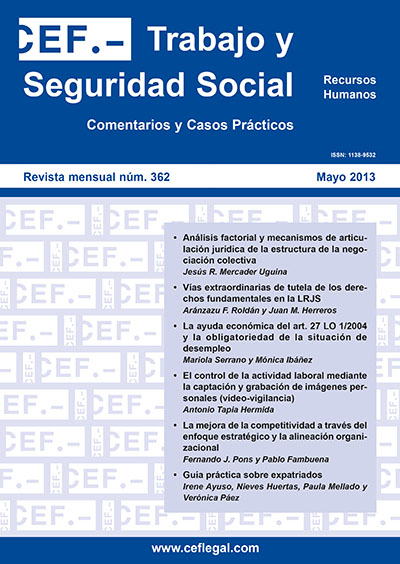The control of the labour activity by capturing and recording own images (video surveillance)
Comment to the Constitutional Court Judgement, First Courtroom, 29/2013, dated February, 11, 2013, amparo appeal num. 10522/2009
DOI:
https://doi.org/10.51302/rtss.2013.3134Keywords:
right to privacy, one's own image and personal data protection, management power, sanction power, work rendering control, video surveillanceAbstract
In the framework of the industrial relations, the «corporate role» implies the control of the work rendering which, obviously, is being adjusted to the technological advances. The installation, with such purposes, of personal images reception and recording systems (video surveillance) must respect the personal data protection right of the workers. Specifically, it should be offered to them prior, clear and unequivocal information regarding the characteristics and scope of the installed systems, clearly setting out if they can be used to impose disciplinary sanctions due to the lack of fulfilment of obligations arising from the employment contract.


















